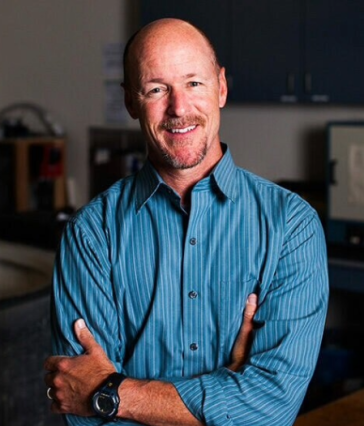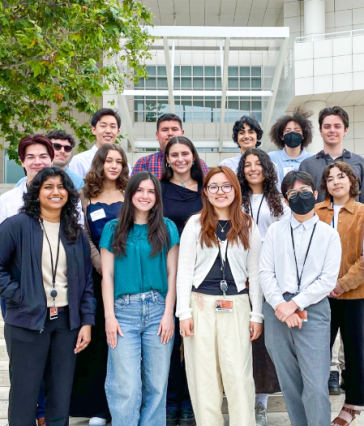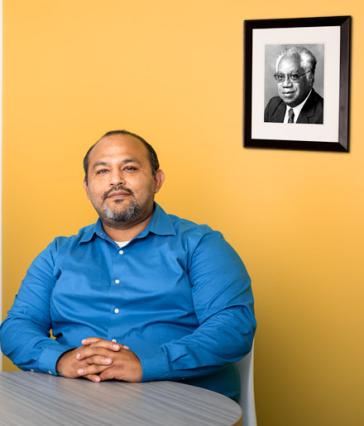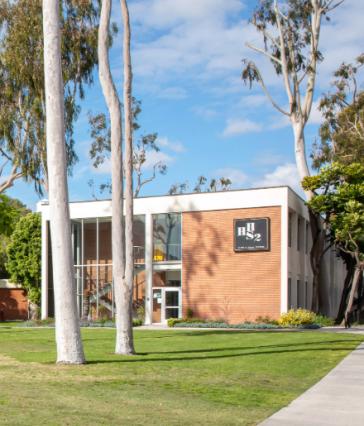CSULB’s Pow Wow focuses on the next generation
After making a triumphant return last year, the 51st annual CSULB Pow Wow – the largest university-based powwow west of the Mississippi River – is gearing up for the Upper Campus Quad this weekend, March 9 and 10.
Last year’s 50th anniversary Pow Wow was the first such gathering after a three-year hiatus due to the pandemic. Similar to last year, between 5,000 and 7,000 people are expected to attend this year, with folks coming in from all over the state, the Midwest and Canada.
“Last year, we focused on older people, the elders,” said Craig Stone, director of American Indian Studies and a longtime participant and organizer of the powwow. “Now with this new 51st one, we’re representing the younger, next generation.”
In that spirit, here’s a look at three CSULB students who will be participating in the powwow – two who are mainly organizers, and one who has been selected as head singer.
Eric Bohay
Eric Bohay is a third-generation CSULB Pow Wow participant.
His grandfather Phil was at the first powwow in 1969, supporting the gathering and helping to get it going. His father Steve, president of the Golden State Gourd Society, has been involved in the powwow for decades.
Now Eric, a fourth-year student in geography at The Beach, is carrying on the tradition. He’ll be Head Southern Singer at this year’s powwow, which is also known as the CSU Puvungna Pow Wow.
“I’ve been coming my whole entire life, since I was a baby, up until now,” said the first-generation college student. “The majority of the time, I’ve been dancing at the powwows, probably until my early 20s, then more so lately, I just started really singing.”
As head singer, Bohay, who is half Kiowa and half Bishop Piute, will sing in the center of the powwow arena, as drums beat and participants dance around him.
“What makes it really different out here, they follow the older powwow ways that were brought out here,” he said. “To me, it’s something special. Just seeing my family come here year after year. The way this powwow is, they try to keep it true to its roots.”
Bohay, 31, said the CSULB Pow Wow is important for Native American communities, but also for those who want to learn more about them.
“It keeps that camaraderie between other natives here. They come together to show our traditions – we’re still here, but it’s also to educate. We want to show who we are as native people. It’s not as Hollywood portrayed us back in the day. We’re a strong people; we’re still around.”
Eleanor Nelson
Eleanor Nelson has only experienced one powwow at CSULB, but her rise to a leadership position in the campus’ Native American community has developed quickly.
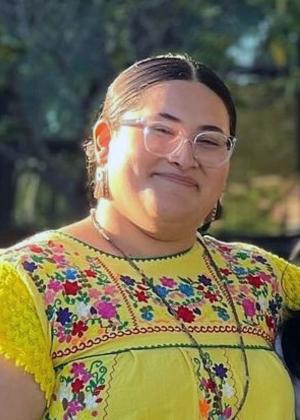
The second-year political science major is president of the American Indian Student Council and coordinator of this year’s Pow Wow. She’s also coordinator of the Puvungna Resource Center.
As president of the American Indian Student Council – one of the organizers of this year’s Pow Wow – “it’s basically just maintaining good relationships between American Indian students and American Indian faculty and staff. Organizing all of us together and making sure that your community is represented in the best way possible.”
She said the CSULB Pow Wow, and others like it, are great for the American Indian community to celebrate their cultures and share time and space together.
“For a long time, we were never allowed to participate in our cultural ceremonies, even speaking our native language,” said Nelson, 19, who is Pascua Yaqui from Arizona. “Now that Pow Wow is here, there are people of different cultures experiencing it with us. It’s a huge thing, because it shows how far we’ve come as a people, and it does show our resiliency as well.”
Cheweka Palowen Lawson
Cheweka Palowen Lawson, a fourth-year English Literature major at CSULB, is also on the organizing committee for the 51st annual Pow Wow. Like Nelson, she has been busy contacting people, arranging their visits, and planning for the setup and registration during the big weekend.
“I will be dressed in woman’s Southern clothing, in my bird dress regalia,” said Lawson, who is a member of the Torres Martinez Desert Cahuilla tribe located in Thermal, 32 miles southeast of Palm Springs. “I used to dance when I was younger. I got out of it for a while. You’ll see me coming back into the arena.”
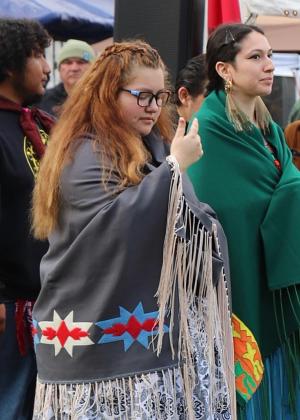
While the 51st Pow Wow will only be her second CSULB Pow Wow, she has been to many other powwows before, including ones at Morango, San Manuel, Pachanga, UC Riverside, El Camino College, CSU Dominguez Hills and Spotlight 29 in Coachella.
“I think powwows are important because everyone gathers around, you get to see your family that you haven’t seen for a while, meet new people, share different cultures in the powwow that a lot of people have not seen.”
She believes powwows represent resilience in Native American culture. “It shows we’re still here. We’re still practicing what we’ve been taught for a long time. We’re still going on, going strong, and we’re not going to go nowhere.”
As others have said, Lawson, 24, sees the focus of this year’s powwow on the younger generation.
“Our theme is like passing the torch toward the younger folks,” she said. “Some older people are not able to come out and participate and dance no more. The younger generations are coming out more and contributing and showing their knowledge and stuff they got from their family.”








